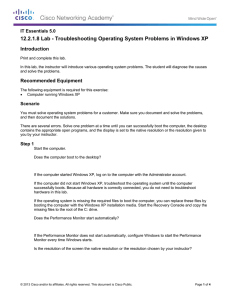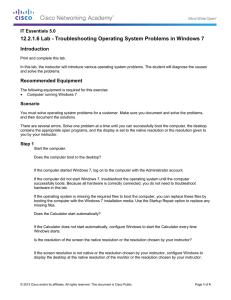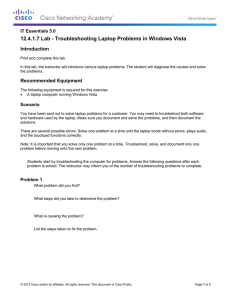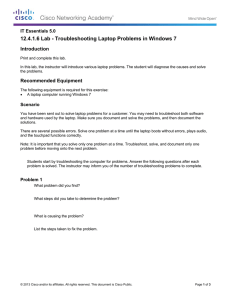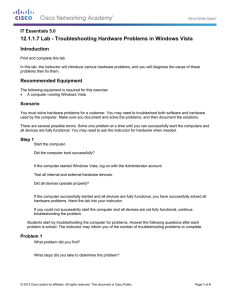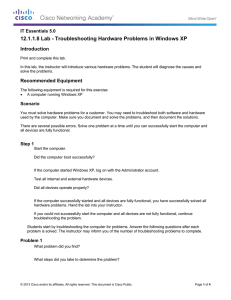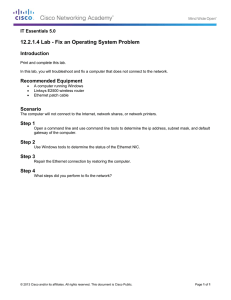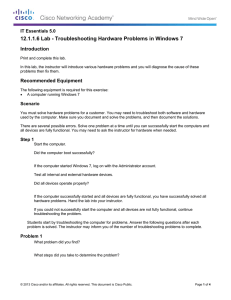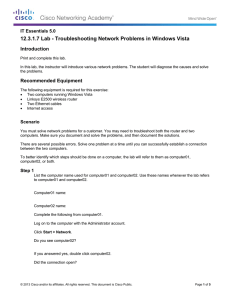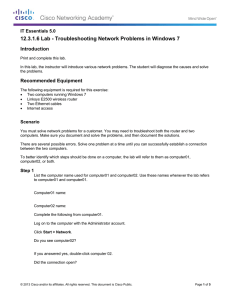12.2.1.7 Lab - Troubleshooting Operating System Problems in Windows Vista Introduction
advertisement
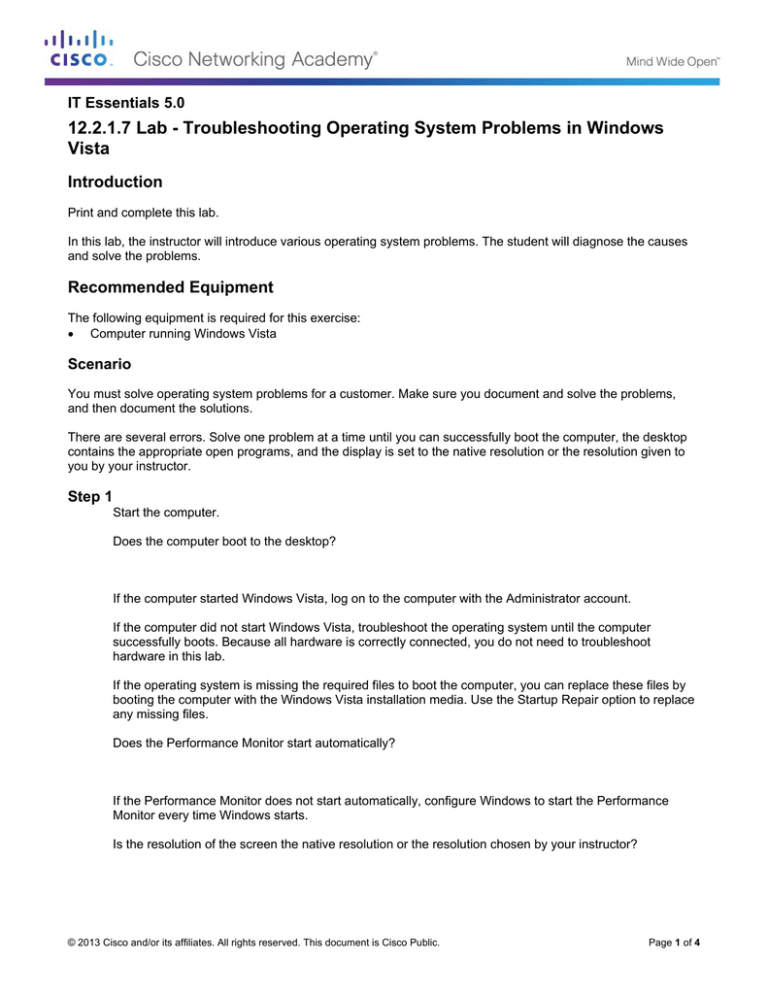
IT Essentials 5.0 12.2.1.7 Lab - Troubleshooting Operating System Problems in Windows Vista Introduction Print and complete this lab. In this lab, the instructor will introduce various operating system problems. The student will diagnose the causes and solve the problems. Recommended Equipment The following equipment is required for this exercise: • Computer running Windows Vista Scenario You must solve operating system problems for a customer. Make sure you document and solve the problems, and then document the solutions. There are several errors. Solve one problem at a time until you can successfully boot the computer, the desktop contains the appropriate open programs, and the display is set to the native resolution or the resolution given to you by your instructor. Step 1 Start the computer. Does the computer boot to the desktop? If the computer started Windows Vista, log on to the computer with the Administrator account. If the computer did not start Windows Vista, troubleshoot the operating system until the computer successfully boots. Because all hardware is correctly connected, you do not need to troubleshoot hardware in this lab. If the operating system is missing the required files to boot the computer, you can replace these files by booting the computer with the Windows Vista installation media. Use the Startup Repair option to replace any missing files. Does the Performance Monitor start automatically? If the Performance Monitor does not start automatically, configure Windows to start the Performance Monitor every time Windows starts. Is the resolution of the screen the native resolution or the resolution chosen by your instructor? © 2013 Cisco and/or its affiliates. All rights reserved. This document is Cisco Public. Page 1 of 4 IT Essentials Chapter 12 - Lab If the screen resolution is not native or the resolution chosen by your instructor, configure Windows to display the desktop at the native resolution of the monitor or the resolution chosen by your instructor. If the computer successfully started, the desktop contains the appropriate open programs, and the display is set to the native resolution you have successfully solved all operating system problems. Hand the lab into your instructor. If you could not successfully start the computer, the desktop does not contain the appropriate open programs, and the display is not set to the native resolution, continue troubleshooting the problems. Students start by troubleshooting the computer for problems. Answer the following questions after each problem is solved. The instructor may inform you of the number of troubleshooting problems to complete. Problem 1 What problem did you find? What steps did you take to determine the problem? What is causing the problem? List the steps taken to fix the problem. Problem 2 What problem did you find? What steps did you take to determine the problem? What is causing the problem? List the steps taken to fix the problem. © 2013 Cisco and/or its affiliates. All rights reserved. This document is Cisco Public. Page 2 of 4 IT Essentials Chapter 12 - Lab Problem 3 What problem did you find? What steps did you take to determine the problem? What is causing the problem? List the steps taken to fix the problem. Problem 4 What problem did you find? What steps did you take to determine the problem? What is causing the problem? List the steps taken to fix the problem. Problem 5 What problem did you find? What steps did you take to determine the problem? What is causing the problem? List the steps taken to fix the problem. © 2013 Cisco and/or its affiliates. All rights reserved. This document is Cisco Public. Page 3 of 4 IT Essentials Chapter 12 - Lab Problem 6 What problem did you find? What steps did you take to determine the problem? What is causing the problem? List the steps taken to fix the problem. Problem 7 What problem did you find? What steps did you take to determine the problem? What is causing the problem? List the steps taken to fix the problem. © 2013 Cisco and/or its affiliates. All rights reserved. This document is Cisco Public. Page 4 of 4
